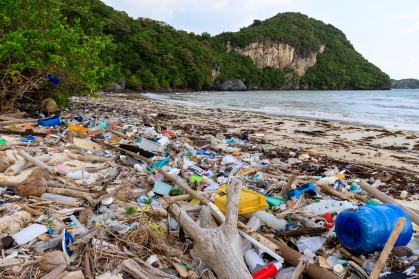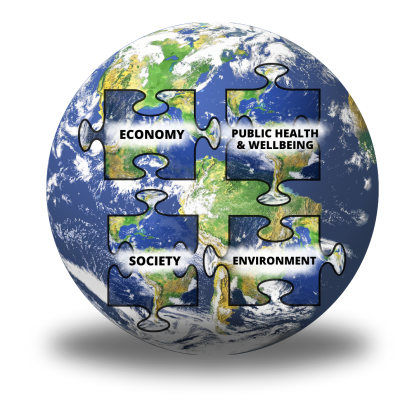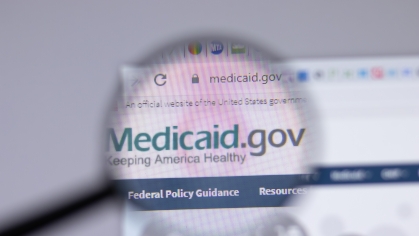Earth Day 2024 takes place on April 22 when around one billion people come together across the globe to focus on sustainability and take action to create a healthier and brighter future for all. The theme this year is ‘Planet versus Plastics’, with Earth Day calling for a 60 percent reduction in the production of all plastics by 2040. Plastic pollution poses a serious threat to ecosystems, wildlife, and human health now and for future generations.
Wendy M. Purcell, a global expert in sustainability and Vice Chair for Education for the Department of Environmental and Occupational Health and Justice at the Rutgers School of Public Health, explores the connections between planetary and human health. She is clear that “Public health is connected directly to the health of our planet. For example, the climate crisis is worsening underlying health conditions, and the evidence of health harm from plastic is growing. One estimate is that we unwittingly ingest the equivalent of eating one plastic credit card every week! And, we know that these risks are unevenly distributed, so our work on social justice and equity are key to the pursuit of sustainability.”

Creating a world that leaves no one behind relies upon a healthy planet that is able to sustain a healthy society that can itself sustain inclusive economic prosperity. Scientific research on plastics and health shows they are linked to illness, from cancers to cognitive decline. When broken up into micro- and nano-plastics, plastics can interfere with the function of various organ systems such as the lung, immune system, and heart to name a few with children and the unborn especially vulnerable.
“Every person, in every place, from every calling, has a role to play in safeguarding the health of the planet and people for future generations.”
While we all inhale, eat, and touch plastics in our everyday activities, some groups and workers are particularly exposed during its manufacture and waste management. As such, the negative effects of plastic pollution on human health of plastics are not evenly distributed. Those who are poor, disempowered, and/or marginalized, racial and ethnic minorities, and ‘fenceline’ communities carry inequitable burdens, reflecting social and environmental justice concerns.

In an effort to address planetary and human health through the training of public health professionals, the Rutgers School of Public Health has created a suite of new courses and research programs that explore the intersections of planetary and human health. Its new courses on Sustainability (ENOH 0621) and Climate Change (ENOH 0620) launch in Fall 2024 with new programs planned for 2025. Join us and add your voice and actions to help create a more inclusive and impactful global event and visit https://www.earthday.org/earth-day-2024/ to access the Earth Day Action Toolkit and the Earth Day Social Media Toolkit.



